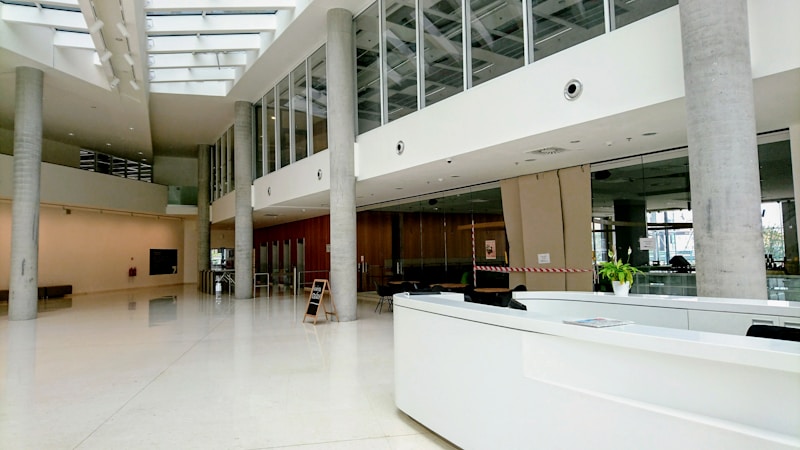Podcast
Questions and Answers
What does Cultivation Theory primarily focus on?
What does Cultivation Theory primarily focus on?
What does the Media Equation theory suggest about interactions with technology?
What does the Media Equation theory suggest about interactions with technology?
Which concept describes how people avoid media that contradicts their beliefs?
Which concept describes how people avoid media that contradicts their beliefs?
What underlying reason do Reeves and Nass give for the Media Equation phenomenon?
What underlying reason do Reeves and Nass give for the Media Equation phenomenon?
Signup and view all the answers
What is a key feature of the Spiral of Silence theory?
What is a key feature of the Spiral of Silence theory?
Signup and view all the answers
According to the Media Equation theory, how do people interact with computers and media?
According to the Media Equation theory, how do people interact with computers and media?
Signup and view all the answers
What does Two-Step Flow Theory suggest about media communication?
What does Two-Step Flow Theory suggest about media communication?
Signup and view all the answers
What issue does Griffin raise concerning the Media Equation concept?
What issue does Griffin raise concerning the Media Equation concept?
Signup and view all the answers
Which theory emphasizes the role of the media in shaping social norms and perceptions over time?
Which theory emphasizes the role of the media in shaping social norms and perceptions over time?
Signup and view all the answers
What is a key difference between one-way communication and two-way flow of messages as discussed in relation to the Media Equation?
What is a key difference between one-way communication and two-way flow of messages as discussed in relation to the Media Equation?
Signup and view all the answers
In what way does Framing Theory operate?
In what way does Framing Theory operate?
Signup and view all the answers
What aspect does the concept of Media Equation relate to?
What aspect does the concept of Media Equation relate to?
Signup and view all the answers
What does Media Effect refer to?
What does Media Effect refer to?
Signup and view all the answers
Which theory suggests that media can create a long-term shift in individual perceptions and attitudes?
Which theory suggests that media can create a long-term shift in individual perceptions and attitudes?
Signup and view all the answers
What does Gatekeeping Theory primarily focus on?
What does Gatekeeping Theory primarily focus on?
Signup and view all the answers
Which of the following is a primary characteristic of the Spiral of Silence theory?
Which of the following is a primary characteristic of the Spiral of Silence theory?
Signup and view all the answers
Which of these describes the Two-Step Flow Theory?
Which of these describes the Two-Step Flow Theory?
Signup and view all the answers
What is a key aspect of Selective Exposure Theory?
What is a key aspect of Selective Exposure Theory?
Signup and view all the answers
How can media effects be described, as per the provided content?
How can media effects be described, as per the provided content?
Signup and view all the answers
Who could be considered a 'gatekeeper' in the context of media?
Who could be considered a 'gatekeeper' in the context of media?
Signup and view all the answers
In the context of media influence, which type of effect might be hardest to identify?
In the context of media influence, which type of effect might be hardest to identify?
Signup and view all the answers
What is one of the major implications of the Mighty Media era?
What is one of the major implications of the Mighty Media era?
Signup and view all the answers
Study Notes
Introduction to the Realm of Communication
- Lecture 10 delivered by Alexandra Nagy-Béni, PhD at Corvinus University of Budapest
- Topics covered include mass media effects theories
- The lecture also covered the timetable for the semester including tests and workshops.
Mass Media Effects II
- Included media effect theories: gatekeeping, agenda-setting, spiral of silence, framing, priming, cultivation, and media equation theories.
- These are all part of media effect theories volume 2.
CommVille Roadmap
- Covers a semester's worth of topics on communication, interpersonal dynamics, and nonverbal communication.
- Includes a schedule of workshops, tests, and presentations.
- The semester covers topics like nonverbal communication, interpersonal communication and influence, and mass communication, etc.
Media Effects Influence
- Media effects are occurrences resulting from media influence
- Effects can be immediate or take a long time to manifest
- Effects can last from a few seconds to a lifetime
- Effects can be positive or negative
- Effects reinforce existing patterns/occur without media intent
- Media effects can affect individuals and society, institutions, and are observed in public life
- Some effects are visible, others are latent (hidden)
Historical Models of Media Influence
- "Almighty Media" period: before 1940
- "Powerless Media" period: 1940s-1970s
- "Mighty Media" period: 1970s-present
- Gripsrud's principle outlines the progression of media's influence throughout time/chapters.
Gatekeeping Theory
- Originated from Kurt Lewin's studies of human behavior
- Media gatekeeping involves selecting and filtering media content based on time constraints etc
- Gatekeepers decide what information moves past to the audience and decide what information should move past (e.g. news editors).
- Key figures in the theory are Lewin, McCombs, Shaw.
Agenda-Setting Theory
- News content shapes public beliefs about important societal issues
- Analysis of the 1968 presidential campaign helped define the theory: focusing on prominent issues
- First-level agenda setting highlights how media coverage predicts public perception of importance; the amount of coverage predicts how important the issue is
- Second-level agenda setting demonstrates how the media influences what we think about.
- The theory's key theorists include McCombs and Shaw.
Spiral of Silence Theory
- Public beliefs shape public discourse
- When media ignore an issue, people are less likely to express opinions on it, even those very important to them.
- Silence begets more silence; as minority opinions are silenced, consensus forms in a society.
- The social pressure to adopt the dominant view increases as a result.
- The theory was developed by Noelle-Neumann.
Framing Theory
- Information presentation shapes public perception
- Framing involves selecting certain aspects of reality, making them more prominent to promote a specific definition of a problem, moral evaluation, etc.
- Frames influence individual views, and the solutions to the problem at hand.
- Frames are reinforced every time they appear.
- Prominent theorists on the theory are Goffman, Entman, Herman, Chomsky.
Priming Theory
- The theory examines the ways in which the human brain can be primed to notice events/ideas
- By reminding us continually of a specific word or phrase, it becomes salient when we see it again, a form of pre-suasion.
- When an issue repeatedly appears in media, we think about it, because we're primed and ready to notice it in particular contexts/situations.
- Key figures are Iyengar, Peters, and Kender.
Cultivation Theory
- Focuses on long-term media effects
- Repeated exposure to consistent media themes shapes perceptions of reality, making viewers perceive an illusory reality.
- Heavy media users may perceive reality differently than those who are light users, even with the same context.
- Gerbner is a key figure in this theory.
Media Equation Theory
- Interactions with computers, television, and new technologies are similar to real-life social interactions.
- People treat computers and television screens as though the people on the screen are actually there
- Human beings perceive/react the same way to these types of technologies; study finds people are polite to computers in certain situations, etc.
- Developed by Reeves and Nass.
Media Effect Models and Theories
- Examines the different direct & indirect effect/media usage & consumption of media by its receivers.
- Looks at different theories, and categorizes them based on the relationship between the sender and receiver of the message. The categories include direct effect/media consumption and indirect effect/media usage.
Overview of the Semester
- A timeline for major workshops/presentations throughout the semester was provided.
- Various topic areas on interpersonal communication were listed.
- The types of theories discussed were listed, including interpersonal communication theories, etc., and different theories for mass media effects.
Studying That Suits You
Use AI to generate personalized quizzes and flashcards to suit your learning preferences.
Related Documents
Description
Explore the theories of mass media effects including gatekeeping, agenda-setting, and framing in this comprehensive quiz. Designed to reinforce your understanding of the impact of media on public perception and interpersonal communication throughout the semester. Prepare for tests and workshops with detailed explanations and examples.




